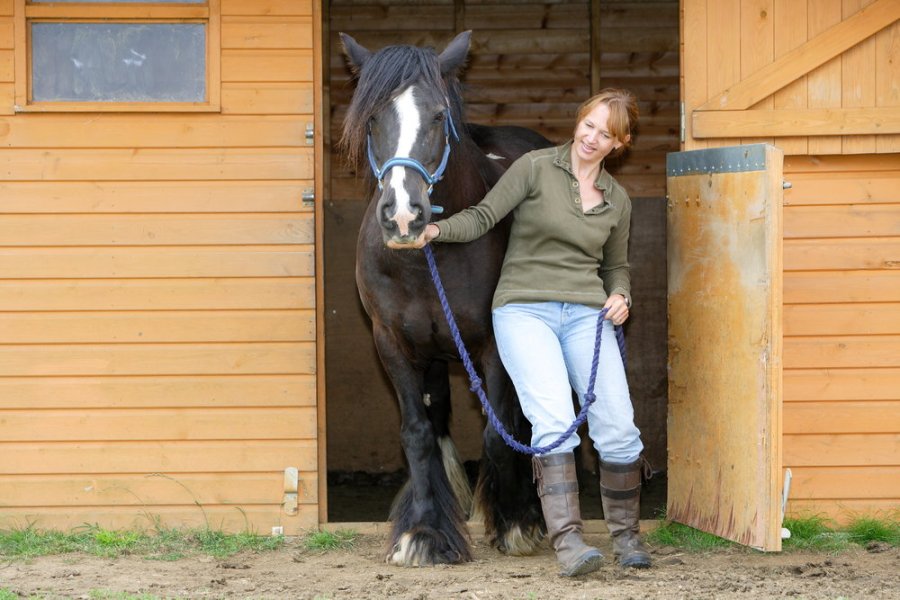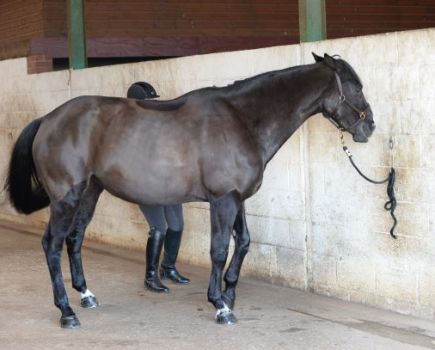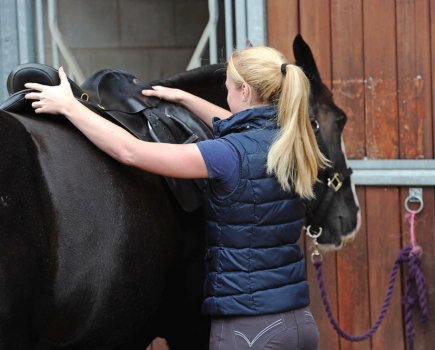A horse that barges or is ill-mannered on the ground is no joy to handle. Behaviour consultant and horse trainer Melanie Watson explains the triggers behind barging, and ways you can manage it.
First, we have to consider the influence of the horse’s environment. The place in which a horse finds himself affects his behaviour in one of four ways – leave, stay, avoid or escape.
Certain environments may affect your horse and the stress-related behaviours on show reflect how he feels. Ask yourself where he is being asked to go and how he feels about going in that direction.
It he’s super-happy to get somewhere, he’ll be very keen to arrive, anticipating a rewarding outcome. If he feels fearful of going towards that place, then he will try to stop you from taking him there.
Escape behaviours happen when the horse doesn’t want to leave an environment where he feels safe.
Feed plenty of forage
Hunger will drive the need to be somewhere too, so making sure the field where your horse is kept has plenty of available forage all the time will be helpful.
Turn him out first in the line of horses so he’s not stressed at seeing his friends leave him. Don’t take bonded horses away from him in the field either, as this will also cause him stress.
Hadler influence
You also need to allow for what your horse has experienced while being handled by humans. Because we don’t tend to pay attention to the environmental triggers, people instead concentrate on the actual behaviours occurring.
We try to stop them from happening by escalating pressure and control techniques. This causes pressure or pain to the horse, which adds to the emotional mix inside his head. To the horse, every single behaviour has a meaning and an objective.
Reward training such as clicker training is a positive way to build connection, attention, impulse control and mutual bonding.
But as barging is often an emotional response introduce such training with extreme caution and seek the assistance of a professional to start you off.
Don’t miss the latest issue of Your Horse Magazine, jam-packed with training and veterinary advice, horse-care tips and the latest equestrian products available on shop shelves, on sale now.









